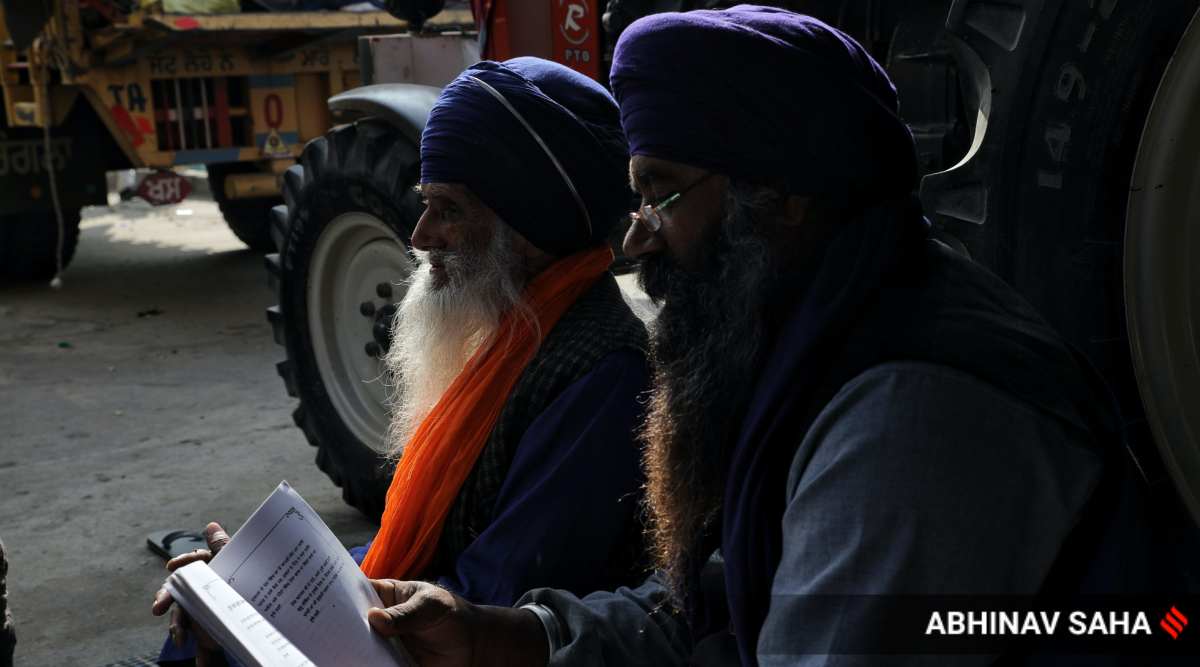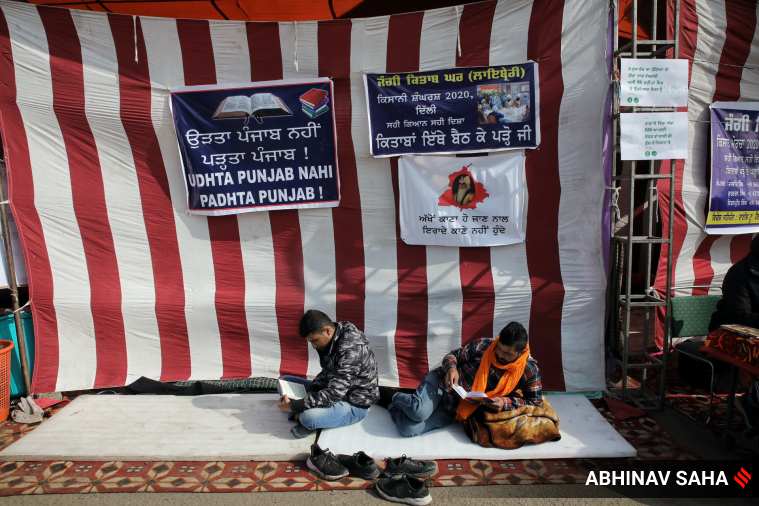 The protest site at Singhu Border In New Delhi on Thursday. (Express photo by Abhinav Saha)
The protest site at Singhu Border In New Delhi on Thursday. (Express photo by Abhinav Saha)IT WAS a few nights ago that the idea of a newsletter in Hindi and Punjabi was born inside a farmer’s trolley at Singhu border, where thousands have been protesting against the farm laws since November 26. Finally, on Thursday night, at least 2,000 copies of the four-page newsletter — aptly called Trolley Times — reached Singhu and Tikri borders, for circulation Friday.
“Judaange, Ladaange, Jeetange!” is the page-one headline of the first issue of the bi-weekly newsletter, which has photographs, cartoons, poems, news reports and opinion pieces written by union leaders and protesting farmers. Of the four pages, one is in Hindi.
“I’ve been here from day one, and noticed that the morcha at Tikri and Singhu borders are spread across several kilometres. Not everyone shows up to listen to the speakers on stage daily, they ask each other what transpired… Through the newsletter, the message from the stage, the development in talks with the government, among other such reports, can easily reach farmers,” said scriptwriter Surmeet Maavi (46), who started Trolley Times with Barnala-based documentary photographer Gurdeep Singh Dhaliwal (27).
While Maavi said the newsletter is also a way of showcasing the “intellect of the farmers”, Dhaliwal said the need also arose from the general “lack of faith that the protesters have in Front page of Trolley Times mainstream media”. Once the idea was floated inside farmer Narinder Bhinder’s trolley, a team of volunteers was put together that approached union leaders, farm law experts, and farmers at the two borders for pieces. “We put up a message on social media platforms and the word spread quickly. At first, we were worried about filling four pages but were overwhelmed with hundreds of emails… I have at least 300 emails, many I haven’t even been able to read yet,” said Dhaliwal.
 Farmers read at the protest site on Singhu Border on Thursday. (Express photo by Abhinav Saha)
Farmers read at the protest site on Singhu Border on Thursday. (Express photo by Abhinav Saha)
On page one Friday, next to the main piece is another story with a photo of a Sikh man sitting inside a tractor a sight most common at the two borders – with the headline, “Inquilaab di talvaar vichaaran di saan tey tez hondi ae”. This is a quote by Bhagat Singh, said Maavi, and it means “the sword of revolution is sharpened at the whetstone of thought”. The editorial on the page, with the headline ‘Ikko naara ladaange, jeetaange’, has been written by veteran kisan leader Sukhdarshan Singh Natt, said Maavi.
The Hindi pieces inside are about farmers from Rajasthan blocking a national highway, and another piece on Delhi and protests. “The Hindi page is for our brothers from Haryana who can’t read Gurumukhi,” he said.
Maavi, who wrote the Diljit Dosanjh-starrer Punjabi film Punjab 1984, studied mass communication, and was a journalist. “We can’t set up a whole team like newspapers but we did get some volunteers on board. The money came from our pockets but there were people generous enough to help us fund this… We are also children of farmers, and this is our way of contributing,” he said.